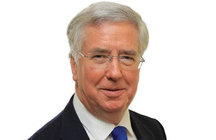Michael Fallon – 2014 Speech at Eurelectric Dinner
Below is the text of the speech made by Michael Fallon, the Energy Minister, on 2nd June 2014.
Introduction
It is a pleasure to be speaking at an event that is focusing on a key challenge facing Europe.
This is a crucial time for EU energy policy. Recent events have brought into focus the importance for all our citizens of energy security. In gatherings such as this there is often very fashionable talk of the so-called trilemma that posits security, affordability, and decarbonisation at opposite points of the triangle. This is false geometry. Without secure, affordable energy we will not be able to move to a more sustainable, lower carbon energy future.
A Common approach
The Rome G7 Energy communique set out with welcome clarity what we need to do as a Union and as countries to strengthen energy security – more home-grown energy, reducing energy demand, diversifying supplies and supply routes, and building the missing internal energy infrastructure and integrated markets so energy in all forms can flow smoothly and freely.
It is vital that we use this momentum to inform decisions that are needed on our objectives for 2030. By acting now we can give investors the certainty they need to commit the enormous sums of money required to modernise and reinforce the EU’s energy infrastructure over the next decade.
This evening I want to focus on the priorities the UK sees for the EU –
First, taking full advantage of the benefits that a single EU market in energy has to offer.
Second, we need to maximise home grown energy sources and diversify supplies.
Third, the 2030 package needs to be a driver of competitiveness that benefits consumers and industry and allows member states to determine their own energy mix and to decarbonise at the pace best suited to their economic situation.
Single market
A well-functioning and integrated internal energy market in electricity and gas will be a critical part of ensuring security of our energy supplies and in keeping energy costs down.
By opening up and integrating markets across national boundaries, we can increase competition, access the cheapest energy and reduce the level of back-up generation needed.
The benefits of a single market are clear and undisputed. So, we must ask what we need to do to achieve them.
The European Council has already agreed that the internal energy market should be completed by 2014. This is something the UK strongly supports.
This means full and effective implementation of the Third Package in every Member State. It also means agreeing on key technical rules aimed at removing the remaining barriers to cross-border trade.
On top of that, Europe need much more investment in interconnection to better link markets.
If we can seize the opportunity we can deliver a more resilient and competitive energy market.
Home grown sources
To deliver these benefits we need diverse sources of energy. We have an abundance of energy resources that it can, and must take advantage of.
That means that exploiting the full use of all energy technologies, from shale gas to renewables, from nuclear to shale. We should not any longer be ideological about energy.
Renewables play, and will continue to play, an important role both in the European energy system and here in the UK. Through the Levy Control Framework this government has set out support through to 2020; with many countries making retroactive changes and reducing their subsidies, our move is unparalleled.
In addition to renewables, new nuclear is critical for the future. The UK has already attracted significant levels of investment into the new nuclear build programme. We reached agreement with EDF on the key terms of a proposed investment contract for the Hinkley Point C nuclear power station. We are now working closely with the European Commission on the Hinkley state aid investigation.
Given the continuing need for gas, we cannot afford to ignore the potential for domestic less sources. The development of shale gas in Europe could reduce our reliance on imports, could place downward pressure on energy prices and it could support the move away from high carbon fuels.
So we are very pleased that the Commission responded to calls from the UK and other Member States to adopt a proportionate approach on the regulation of shale. We are conducting a study with Poland on the impact of shale for our countries and the whole EU which I hope will inform the new Commission and the new Parliament on the need to incentivise exploration, rather than bureaucratise.
Diversify sources
We will, of course, continue to need to import energy into Europe for the foreseeable future. Diversification of routes and sources of gas supply to the EU is an important element of the EU’s energy security policy. In that context I was delighted to hear – earlier this year – of the Final Investment Decision for the development of the Shah Deniz II gas field in Azerbaijan. This means that the Southern Corridor bringing Caspian Gas via the Trans-Adriatic pipeline to Europe is a significant step closer.
The Southern Corridor itself will help to improve Europe’s competitiveness, by providing consumers and industry with a new gas import route and supply source, increasing the continent’s energy security, bringing more competition our market.
2030 Framework
What we saw in the European Elections was voters reacting against a European Union that they consider to be heading in the wrong direction. We need an approach that recognises far more sharply that Europe should concentrate on what matters, on growth and jobs.
And it is that message which must be reflected in the framework for 2030 – 2030 must be a driver for competitiveness and resilience that secures investment in a diverse and low carbon technology base.
Signing up to yet more targets, irrespective of the impact on consumers and business, would be, in our view, deeply irresponsible. That is why we support greenhouse gas emissions reduction target without a binding renewables target.
As I said, Member States must be free to choose the least cost pathway that they determine as appropriate.
And in cutting emissions Members states too must retain the flexibility to take action at their own pace – to go no slower and no faster than other European countries if they so wish.
Conclusion
In conclusion, I would like to share three thoughts.
The importance of energy to our way of life means that keeping it secure is not an option- It’s an imperative.
Secondly, energy is not limited to national borders. Our energy security challenges are best addressed together.
Thirdly, we can only speculate on and not predict the future. Costs of technologies change, as do national circumstances. We need to be ambitious in our objectives, but we must be flexible in how we meet these.
So I think this Convention comes at a crucial time. The next few weeks and months will be important in setting the future direction of the EU energy and climate policy; we, the UK, will play a full role to ensure ambitious climate targets, enhanced energy security and above all strenghten EU competitiveness.
Thank you.


